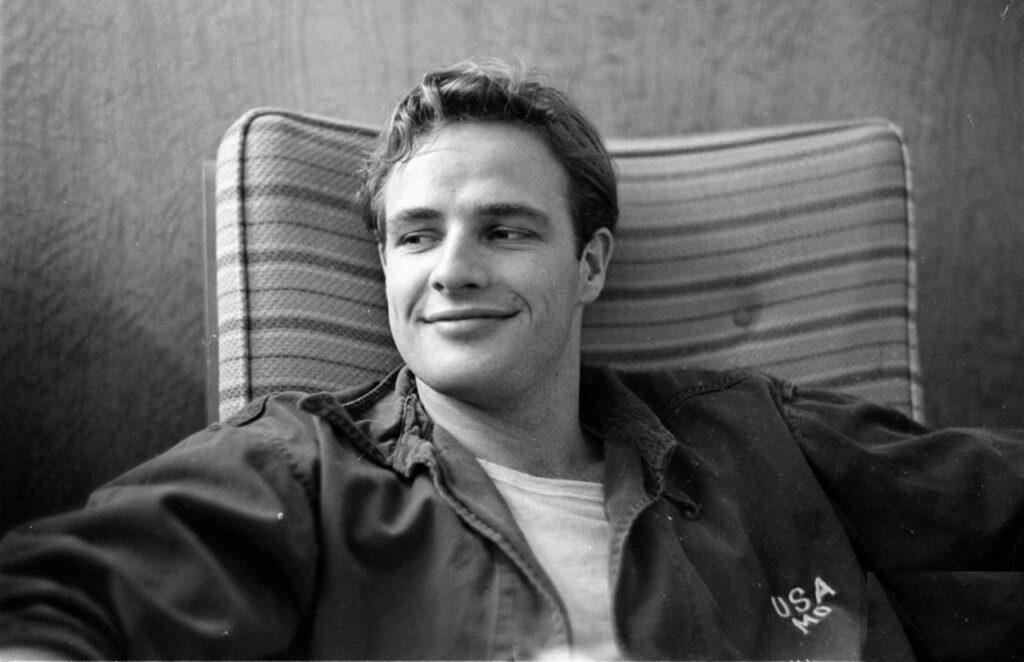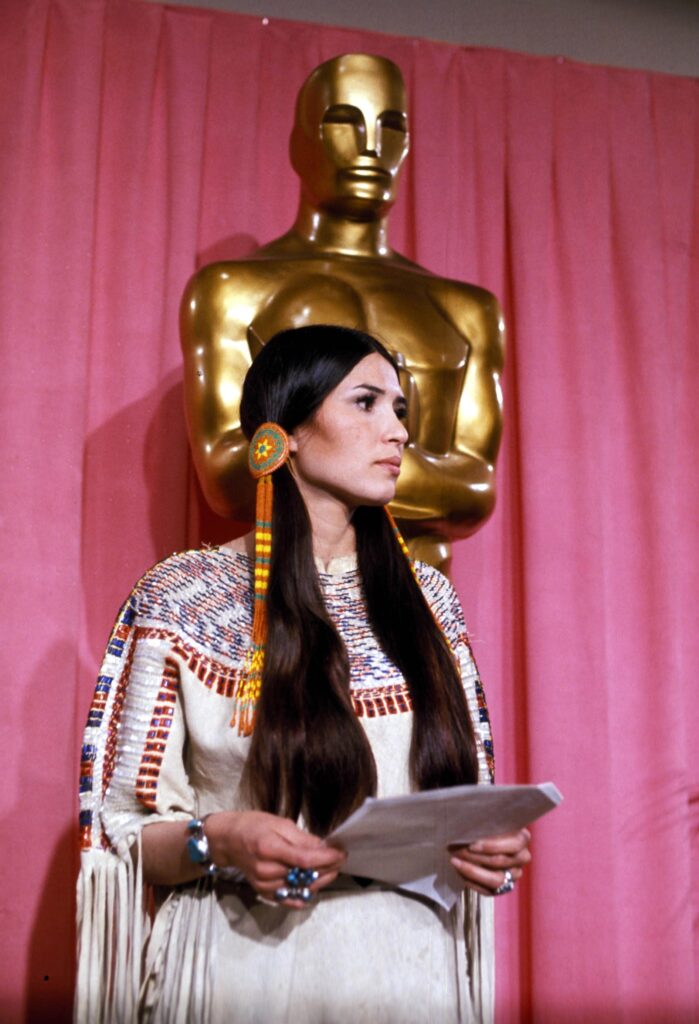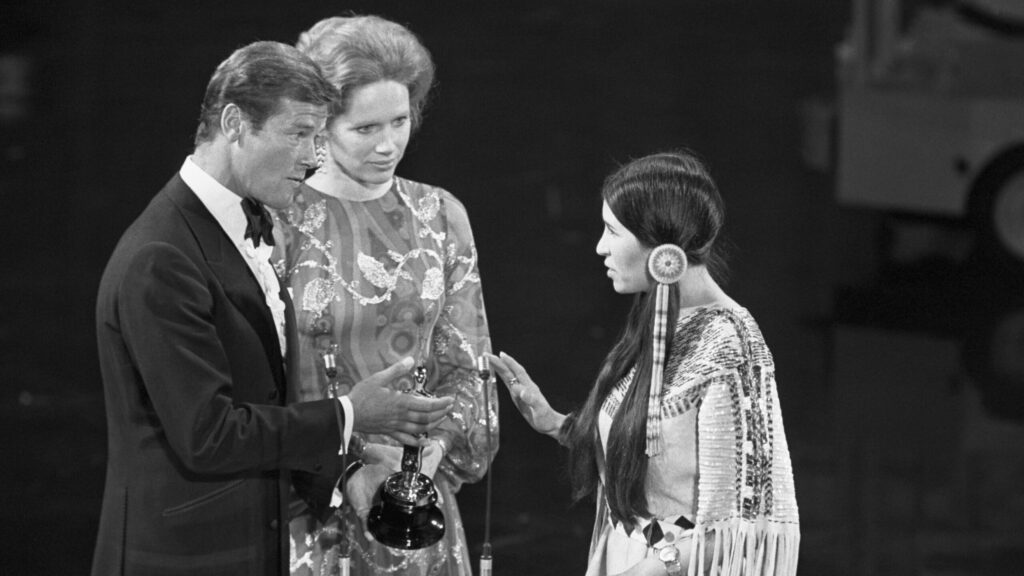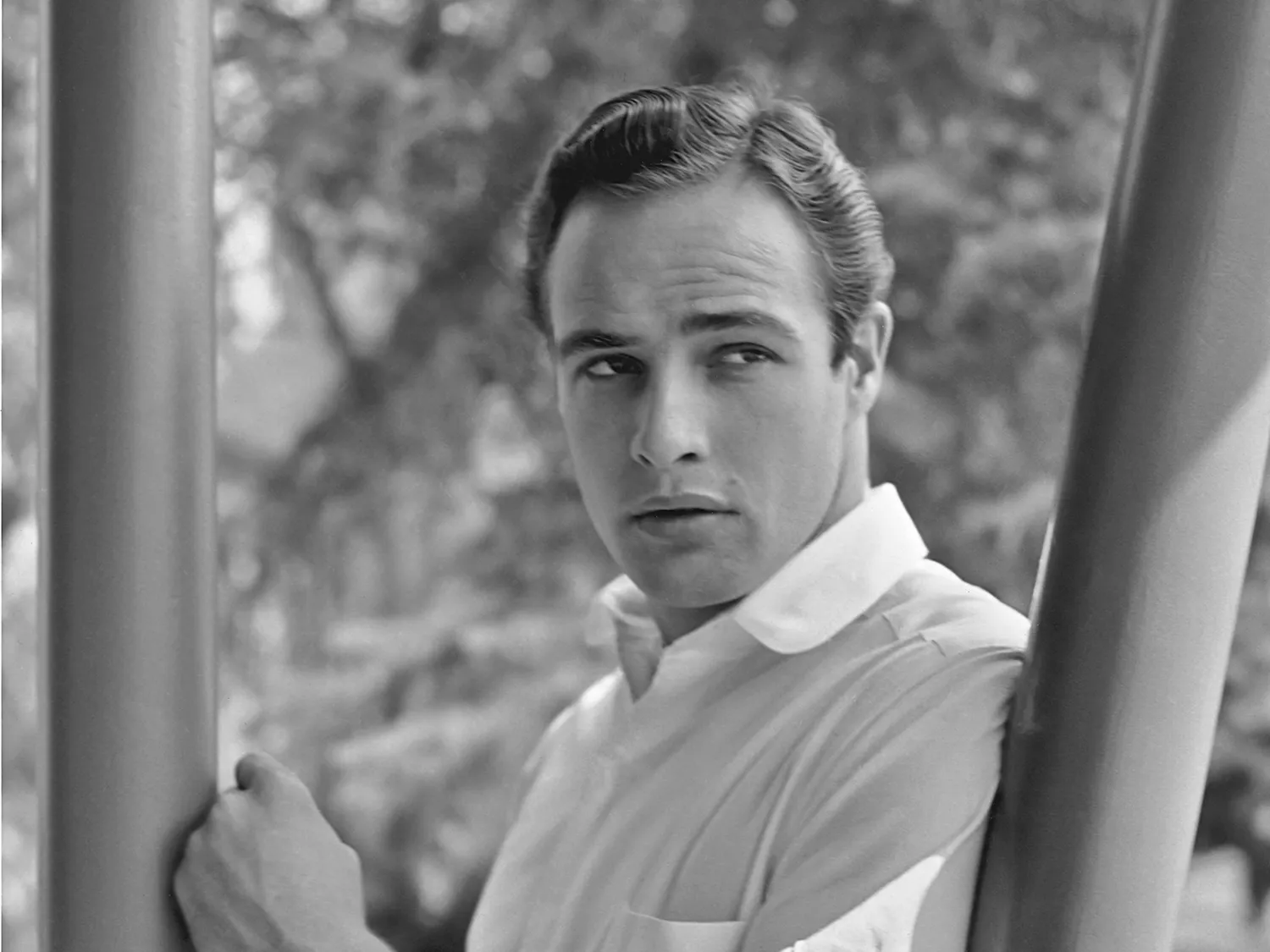Marlon Brando is widely regarded as one of the greatest actors in the history of cinema. He starred in some of the most iconic films of the 20th century, including “On the Waterfront,” “The Wild One,” and “A Streetcar Named Desire.” He was also known for his activism and political views, and his decision to reject the Academy Award for Best Actor in 1973 was a reflection of his political beliefs.

Brando won the Best Actor award for his role as Vito Corleone in “The Godfather” at the 45th Academy Awards ceremony, which was held on March 27, 1973. However, instead of attending the ceremony to accept the award, he sent Native American actress and activist Sacheen Littlefeather in his place to make a speech.

Littlefeather, dressed in traditional Native American clothing, went on stage to a mix of boos and cheers from the audience. She explained that Brando was unable to attend the ceremony because of his opposition to the treatment of Native Americans in the film industry and the U.S. government’s policies towards Native Americans.
She then read a statement from Brando:
“I’m representing Marlon Brando this evening and he has asked me to tell you, in a very long speech which I cannot share with you presently, because of time, but I will be glad to share with the press afterwards, that he very regretfully cannot accept this very generous award. And the reasons for this being are the treatment of American Indians today by the film industry, excuse me, and on television in movie reruns and also with recent happenings at Wounded Knee. I beg at this time that I have not intruded upon this evening and that we will, in the future, our hearts and our understandings will meet with love and generosity. Thank you on behalf of Marlon Brando.”

The incident made headlines around the world, and it had a significant impact on the film industry and the Academy Awards. It brought attention to the treatment of Native Americans in Hollywood and the U.S. government’s policies towards Native Americans. It also raised questions about the role of the Academy Awards in recognizing and promoting certain types of films and performances.
Brando was not the first actor to use the Academy Awards ceremony as a platform for political activism. In 1971, George C. Scott famously refused the Best Actor award for his performance in “Patton,” calling the ceremony “a meat parade” and “a two-hour meat parade, a public display with contrived suspense for economic reasons.”
However, Brando’s rejection of the award was arguably more impactful because it was a deliberate and coordinated protest against the treatment of Native Americans in the film industry and society as a whole. He was a vocal advocate for Native American rights and worked with the American Indian Movement to bring attention to their struggles.
In the years since Brando’s rejection of the award, the Academy Awards have become a platform for political and social activism. Actors and filmmakers have used the ceremony to speak out against injustice and inequality, and to promote causes they believe in.




